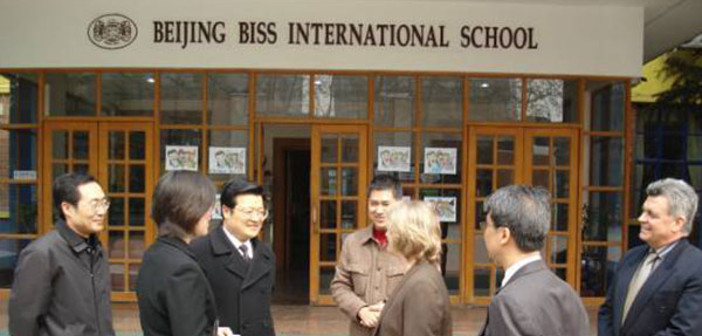Beijingkids have been informed that a plan has been put in place to save the crisis-hit Beijing BISS International School (BISS) from closure.
We understand that a Friday deadline for striking teachers to receive overdue salary passed without any payments being made. Following late night discussions between staff, parents, and officials, the Beijing Municipal Education Commission (BEC) agreed to take over the running of the school for the time being, and it appears that current teachers have begun to receive their wages. The school’s owner, Elvis Tan, was not present at these meetings and is not responding to attempts to contact him. However, at the time of writing, we have been unable to confirm this information with the school, as it appears that staff and parents have agreed not to speak to the media, in order to prevent further reputational damage.
We at beijingkids are delighted to hear that a solution has been found and wish the school well in returning to financial stability. It has been striking in following this story how much loyalty the school inspires from staff, students and parents, and it’s clear there’s a very special spirit at BISS which deserves to survive and thrive.
However, there are lessons from this crisis for everyone who cares about Beijing’s international schools. The make-up of the city’s expat community is changing, with fewer families posted here by their employers on generous packages which include tuition fees. Overall, the number of foreigners in the city is declining, as can be expected given the local government’s drive to cap Beijing’s population. International families are increasingly likely to be the product of mixed marriages, where foreigners have fallen in love and wed a Chinese citizen. They are often here to stay, working toward permanent residency, and tend to be entrepreneurial rather than company workers. And they are less likely to be able to afford fees recently estimated to be the second highest in the world.
Some leaders at traditional international schools, which accept foreign passport holders only, will privately admit to concern about falling numbers of eligible children. Of those who do hold foreign passports, increasingly many are ethnically Chinese and speak English as a second language, which can give the schools they attend a less truly “international” feel. On the other hand, bilingual schools, which teach in English and Chinese, are growing rapidly. But with government rules insisting on the delivery of the core Chinese curriculum, these may be less appealing for those who hope to eventually pursue their education overseas.
One risk arising from these changes is that schools become trapped in a “facilities arms race,” as could be seen when BISS built a new sports dome while teachers went unpaid and students lacked basic supplies. Beijing’s international schools already have world-class facilities, and it’s likely to be new thinking rather than new buildings which will be important in meeting these challenges. As in any rapidly changing situation, it’s the organizations which are flexible and innovative which will prosper.
Most importantly though, the problems at BISS demonstrate the importance of open and honest communication. Given the extraordinary reservoir of goodwill at the school, it must surely have been possible to find a solution at an earlier stage, before so much damage was done, if all interested parties had sat down together and had a free and frank discussion. However, teachers have complained about financial opaqueness, about concerns raised with the school board being ignored, about a refusal to acknowledge the depth of the school’s problems. And they have themselves admitted to a reluctance to “go public”, due to worries about visas and pay.
We at beijingkids believe that everyone who wants to see international education flourish in Beijing must be free to debate and discuss the future of our schools, to share good practice and air problems, without fear or concern for face.
Photo: chinadaily.com




